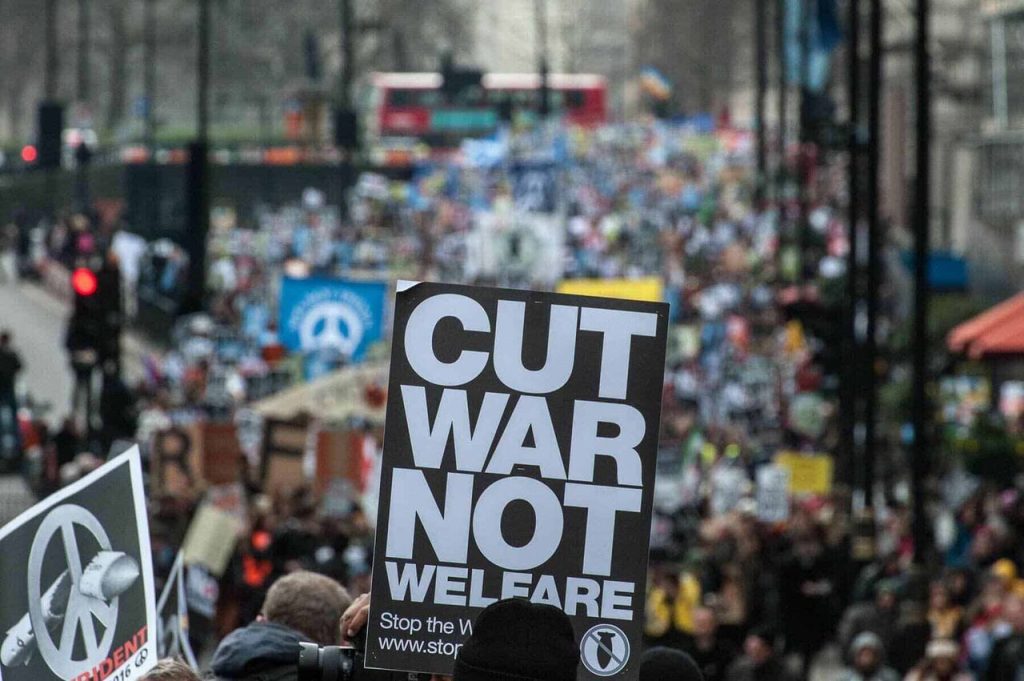Londoners want welfare not war.
The participants in the demonstration, which was called by the “People’s Assembly Against Austerity,” first gathered in front of the BBC building in central London and then marched to the Prime Minister’s office on Downing Street.
Holding banners that read “Prosperity, not war,” “Tax the rich,” and “Funds for public services, not nuclear weapons,” the protesters condemned the economic policies of the Keir Starmer government.
Chris Nineham, deputy director of the largest anti-war campaign in Britain, the “Stop the War Coalition,” told IRNA: “The government has backed down on the Palestinian issue. It has also backed down on cuts to pension benefits and restrictions on disability assistance. In such circumstances, it is time for people to expand their demands and increase public mobilization.”
Emphasizing that “thousands of unionists and civil society activists have taken to the streets today,” he added: “The message is clear; stop the cuts and prioritize people’s well-being, not the war machine.”
Today’s demonstration was the scene of a passionate presence of various social groups, from trade unions and health workers to human rights activists and opponents of inequality. Among the crowd, large banners of “Coalition for Nuclear Disarmament” and “Coalition to Stop the War” were seen next to Palestinian flags.
During a speech at the protest, John Rees, a prominent anti-war and social justice activist, strongly criticized the Starmer government’s economic and military policies, saying, “We want well-being, not war; when the government wants to spend billions of pounds of taxpayers’ money on building nuclear submarines and the profits of arms companies, when the same amount could pay the annual salaries of 40,000 nurses, we say this government does not represent the working class.” “We are on the streets today, and we will come again to stop these policies or to remove this government,” Rees warned.
According to IRNA, the new wave of protests has taken place while the British Prime Minister has recently unveiled a new plan to increase the military budget, aiming to increase the country’s defense spending to 2.5 percent of GDP over the next five years. Starmer claimed in a speech to parliament last week that “empowering the armed forces” is one of the government’s main priorities in the current turbulent world.
At the same time, the British government has approved budget cuts to public services, including the NHS, education and social assistance, as part of a new austerity package, which has raised concerns among various segments of the population, labor unions and civil society groups.
The government’s increasing discourse about Britain’s greater role in international crises and increased defense spending has heightened the concerns of anti-war activists and social justice groups. For this reason, the slogan “Prosperity instead of war” has become one of the main themes of recent protests, including today’s rally in London.

